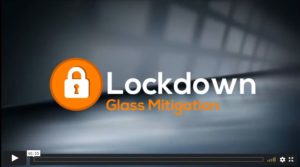Having evaluated a countless number of drills with Districts, I often see the same evaluation mistakes being made time and time again. Below is a list of the 4 most common mistakes along with corrective guidance:
1. Not Evaluating Drills
While virtually every school performs a variety of drills (fire, lockdown, evacuation etc.), many do not evaluate these drills to:determine if staff and students can carry out procedures effectively
- determine if staff and students can carry out procedures effectively
- identify gaps and loopholes in planning
- pinpoint problem areas before an actual emergency
Drills are essential tools to develop muscle memory. But they also provide exceptional insight into whether or not staff and students are comfortable in executing procedures and if those procedures actually work as planned. Every drill should be evaluated by several designated staff members. Typically, members of the Building Emergency Response Team (BERT) are selected for this function.
BONUS DOWNLOAD: Click here to download our Drill Evaluation Template
2. Not Strategically Placing Evaluators
Many times when I evaluate lockdown drills with school staff members, they typically congregate at the main entrance until it is time to start checking doors. Staging at one location does not provide does not allow evaluators the opportunity to observe how staff respond in the drill. Such things that are missed include:* Did staff clear the area immediately outside their room?
- Did staff clear the area immediately outside their room?
- How did staff manage students in large common areas such as gymnasiums?
- Did students in transit immediately report to the closest room?
- How quickly were hallways cleared?
Only by positioning evaluators at key locations around the building can you glean this type of important information that can help to identify problem areas and improve performance.
3. Not Using a Standardized Evaluation Form
It is not enough to simply watch a drill and make informal comments about it’s effectiveness. The District should develop a standardized evaluation form that is used at each school covering each component of the drill including:
- Times including
- Alarm time
- Protocol completion time (locked down, evacuated etc)Other incidents encountered (i.e. fire alarm sounded during lockdown)
- Other incidents encountered (i.e. fire alarm sounded during lockdown)Type of Drill (i.e. Lockdown, Lockout, Evacuation)
- Type of Drill (i.e. Lockdown, Lockout, Evacuation)
- Weather Conditions
- Participants
- Key Positions Filled By
- Problems Encountered Checklist
- General notes with locations of issues noted
4. Not Reviewing Evaluations Forms at the District Level
Every drill at each school should be evaluated at the District Level to identify commonalities and district-wide improvement opportunities. Typically these come in the form of procedural revisions, training, and communication/ infrastructure improvements.
By evaluating data at the District level, administration can see what works well in one building and apply it to others. Plus, uniformity can be achieved throughout the District. This is important when you consider staff and visitors may be in multiple buildings from time to time and consistency in procedures is critical.
Drills are essential to developing the capacity of staff and students to perform in a real emergency. If you are not learning something from every drill, then you are not drilling correctly. Proper evaluation of drills is key to this learning process and something that should be done consistently and uniformly throughout the District.
What challenges or effective techniques have you identified in your schools?
Learn more about effective lockdowns and the proven step-by-step blueprint to create dramatically Safer K-12 schools without the stress, complexity and hassle.





